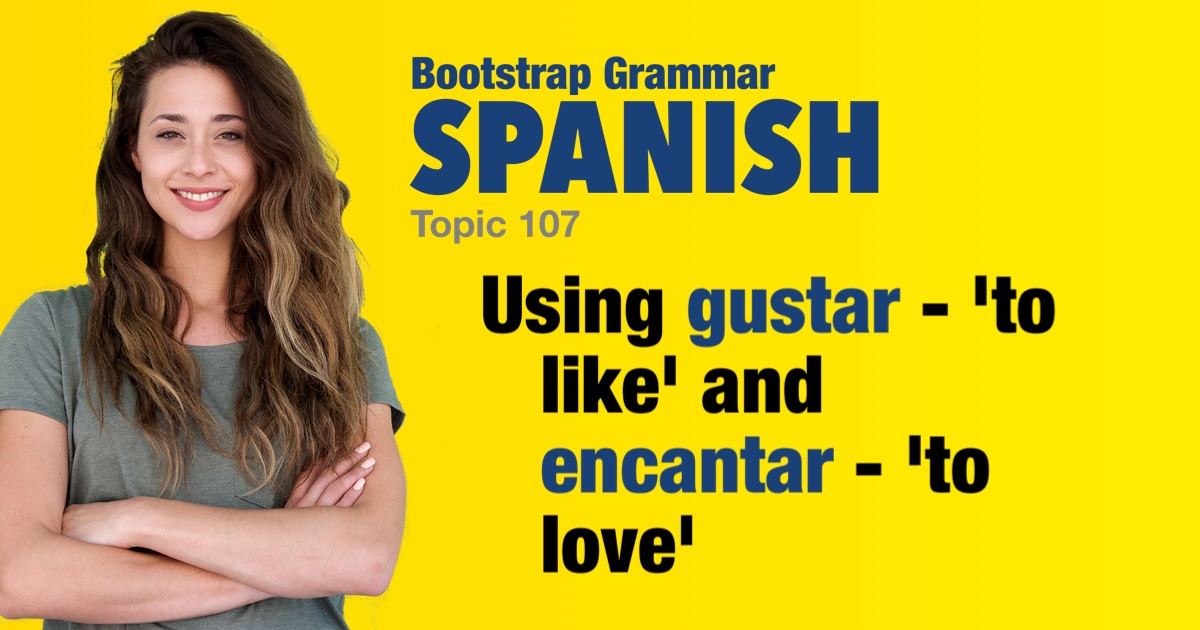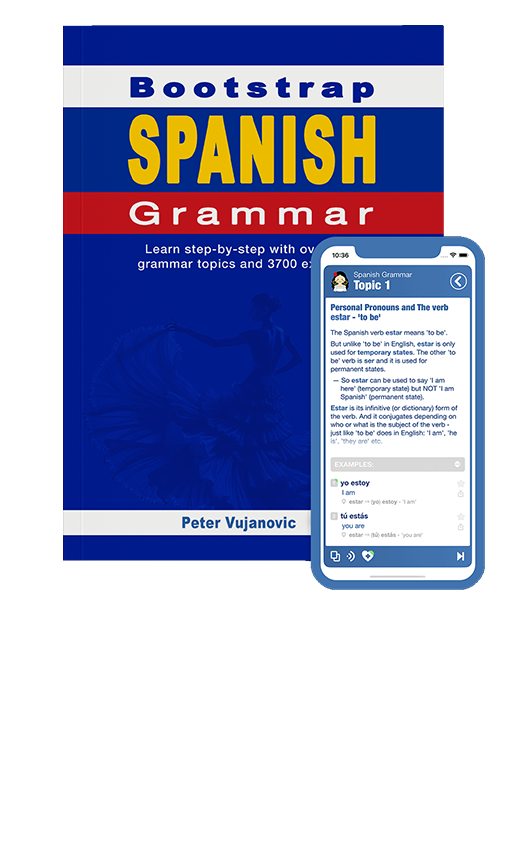Spanish grammar - Using gustar - 'to like' and encantar - 'to love' |
|||
|
|||
The verb gustar is used to express 'to like (somethingΔsomebody)' and always requires an indirect object pronoun to indicate who likes it. The structure is ditransitive: [indirect object pronoun (who likes)] + gustar + [subject (what is being liked)] OR + [infinitive verb (what is liked to be done)]. -- So literally me gusta eso is 'to me' + 'likes' + 'that' or 'that likes to me' or 'that is pleasing to me'. -- Indeed, it can be better to think of gustar as meaning 'to please'. It is important to know that the conjugation of gustar should agree with the subject - that is the thing that is 'liked'. -- gusta for the singular and gustan for the plural. For emphasis and clarification a + [object] can be added. This removes ambiguity by clarifing to whom the indirect object pronoun refers. Note that an indirect object 'pronoun' is ALWAYS required even if an indirect object is already clarified (using a). Everything above also applies to the verb encantar - 'to love' -- Note that encantar doesn't refer to romantic love. That is amar. |
| Examples: | |
|
Me gusta el chocolate.
(I) like chocolate.
|
|
|
Te gustan los libros.
(You, familiar) like books. |
|
|
A Juan no le gusta la música clásica.
Juan does not like classical music.
|
|
|
Nos gusta viajar.
(We) like to travel. |
|
|
No me gustan los gatos.
(I) don't like cats. |
|
|
¿Te gusta bailar?
Do (you, familiar) like to dance?
|
|
|
A María le gustan las flores.
María likes flowers.
|
|
|
A la profesora le gustan los coches.
The teacher (female) likes cars.
|
|
|
Nos gustan las montañas.
(We) like the mountains.
|
|
|
Nos gusta el teatro.
(We) like thetheater.
|
|
|
A María le encantan los cómics.
María loves the comic books.
|
|
|
Me gusta leer.
(I) like to read. |
|
|
¿A los niños les gustan los dulces?
Do the children like sweets?
|
|
|
Nos gusta viajar.
(We) like to travel. |
|
|
No me gusta nadar.
(I) don't like to swim. |
|
|
A mis amigos les gusta el cine.
My friends like the movies.
|
|
|
Nos gusta estudiar.
(We) like to study. |
|
|
A los estudiantes les gustan los exámenes fáciles.
The students like easy exams.
|
|
|
Me gusta escuchar música.
(I) like to listen to music.
|
|
|
Nos encanta el café español.
(We) love Spanish coffee. |
|
|
¿A los niños les gustan los juegos?
Do the children like games?
|
|
|
¿Por qué no te gusta volar en avión?
Why don’t (you, familiar) like to fly by airplane?
|
|
|
¿A quién no le gusta la crema catalana?
Who doesn't like crema catalana?
|
|
 |
|




